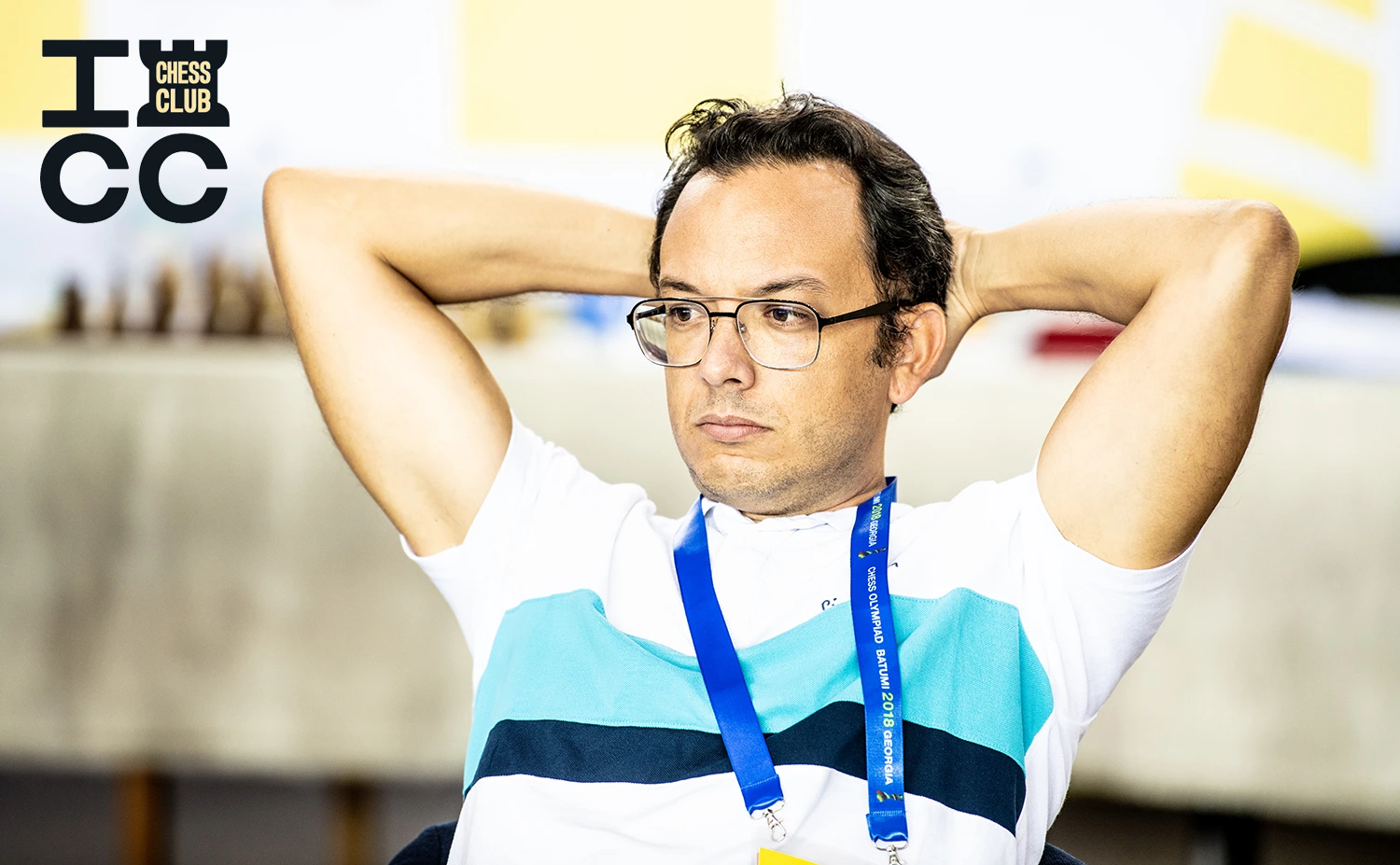Added on 10/30/2024

By David Llada
In a world fixated on records and "the youngest ever" achievements, the story of someone whose perseverance enabled him to fulfill his dreams in his forties is even more inspiring.
As of yesterday, Renier Castellanos is officially a chess grandmaster, a title he had been chasing for more than two decades. He achieved his final norm at the Menorca Open in April, but he had good reason to hold off on celebrating - just yet.
In fact, his reluctance to celebrate is the reason why this interview came to fruition. This past September, when he signed up for the new ICC, we asked if we should add the "GM" tag to his username. "No! I won't make that mistake again!" he replied, laughing. He explained that he had already achieved three GM norms back in 2011, but FIDE declared two of them invalid.
This was a disheartening setback that affected his motivation and ambitions in competitive chess. Alongside changes in his personal life, including his move to Canada in 2012 (where he got married), Renier chose to focus on teaching chess and becoming the best coach he could.
"I had given up on the title. My only ambition was to maintain or improve my rating when possible," he explains. "I just wanted to stay competitive, to be a challenging opponent for anyone." This led him to draw more games than he would have liked, as he admits: "I often settled for a draw against players theoretically stronger than me."
Then, he met Jacob Aagaard, and that became a turning point in his career. They first connected online. They began discussing chess positions and training passionately, and it didn't take long before Aagaard invited Renier to collaborate with his newly founded academy, Killer Chess Training, of which he is now the head coach.
There was only one condition: "You have to get the GM title."
"When discussing chess, Jacob always insisted I had a grandmaster's level and criticized my neglect in pursuing the title. Being capable of something noteworthy and not achieving it didn't sit well with him. He pushed me, pointing out my complacency and carelessness," says Renier. "I had already gotten the idea off my mind. Not everybody achieves what they wish, and I was at peace with the idea. I didn't need to be a GM to be happy. But Jacob made me see this differently."
With a clear goal in mind, Renier adjusted his approach to tournaments. In his first attempt, a round-robin tournament, he won the first game but drew all others. This taught him that merely getting a good result wasn't enough - he'd need to take more risks. Scoring 7 points or scoring 5 would make no difference; both are a failure when your goal is to achieve 8.5 to meet the norm requirements.
"When I finally scored my third norm in Menorca, I felt immense joy and relief. It's hard to describe. It was somewhat unexpected—I had been doing well in the tournament, but I entered the last round unsure of my chances. I don't always want to know who I'll be playing, so I ignored the arbiter's updates after the penultimate round. My wife, Aagaard, and my colleagues at the Academy ended up doing the math."
A journey that began on ICC
With a rating of 2488 at age 21, he earned the IM title shortly after settling in his new home country. The GM title, as we know, would take a bit longer.
Asked about the secret to improving at a not-so-young age, Renier doesn't hesitate: "I recommend solving tactics daily. Easy ones, basic tactics, but in large amounts, every single day," he explains. "Because of my work as a trainer, I spend one or two hours a day on puzzles and tactical exercises."
He elaborates, "People underestimate the importance of spotting simple tactics, very quickly, and being able to calculate them with confidence and accuracy. . Most games are decided by small tactical oversights. For middle-aged players, this is crucial: we lose games when we get tired, lose focus, or run into time-trouble. Training your tactical vision helps prevent mistakes and lets you capitalize when your opponent errs."
According to Renier, it's difficult to outplay opponents of similar strength on knowledge and understanding alone. "With so much information available, I see competitive chess as more of a game than a science, as it may have been in Fischer's or Kasparov's time. Now, it's about being in good shape and maintaining tactical sharpness."
"Modern chess is about preparation, seizing opportunities, avoiding fatigue, and setting aside distractions. Psychology plays an important role," he summarizes. "That's what worked for me. I had inferior positions in many games, but I was always ready to exploit tactical opportunities."
This doesn't mean he downplays the importance of openings. He has authored a book on the Nimzo-Indian Defense and is currently working on a full repertoire against 1.d4. "These were courses I taught at Killer Chess Training, and I decided to turn them into books. They include plenty of text, explanations, and summaries. Even if they're aimed at advanced players, they're very accessible."
Renier defines himself not as a professional chess player, but as a chess professional. He primarily teaches online, dedicating his summers to tournaments. "I enjoy chess in all its forms. I like playing, teaching, reading chess books, and watching games. When I follow a tournament, I can go through all the games, especially those of my friends."
Throughout the interview, Renier repeated a phrase that seems to be his life motto: "What makes you happy is what you have to pursue in life."
